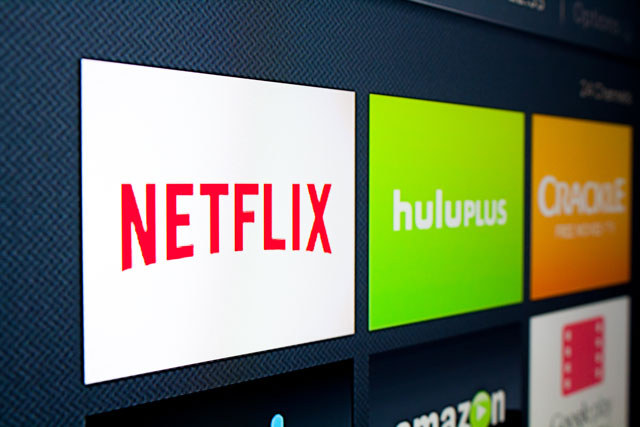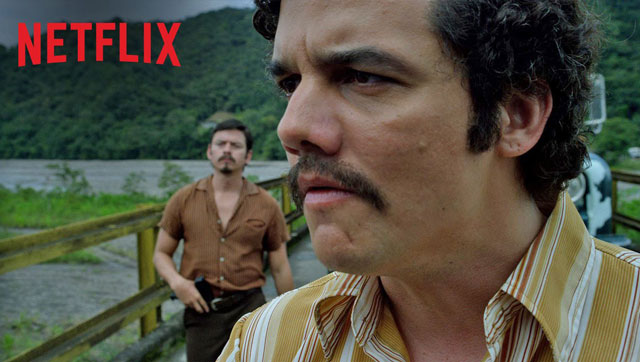
Earlier this month, YouTube’s new subscription video-on-demand (SVOD) service, YouTube Red, launched its first swag of “original” programmes. This followed news of significant rights acquisitions by SVOD services at the Sundance and Berlin Film Festivals, and award ceremony successes (and disappointments) for Netflix and Amazon.
These events point the way to dramatic changes in the business of television. They have implications for producers, traditional TV services, major film studios and viewers around the world. Online SVOD services are increasingly commissioning and purchasing content for premiere screenings, rather than simply operating as aggregators of content from other sources.
In industry parlance, this is “original” content. “Original” is, however, an interesting choice of term, given that many high-profile SVOD productions are revivals of shows first screened on traditional (or “linear”) television. For example, one of Netflix’s first commissions in 2013 was a new series of Arrested Development, a madcap sitcom that originally screened on network television in the early 2000s.
Some of Netflix’s forthcoming reboots include The Gilmore Girls (seven series to 2007), Fuller House (sequel to the American sitcom Full House that screened from 1987 to 1995), and Degrassi: Next Class, a revival of a Canadian high school drama that screened for 14 seasons from 1979.
Netflix’s original feature films for 2016 include the sequel to the 2000 feature film Crouching Tiger, Hidden Dragon, and a slate of films by Adam Sandler. One of Netflix’s main rivals, Amazon Prime, is financing Woody Allen’s next feature film. Allen is also producing a TV series for Amazon that he has described as “a catastrophic mistake” and “an embarrassment”.
Along with the ever-growing number of awards nominations for SVOD originals, the financial muscle of the major services is beginning to be felt in both film and television. Towards the end of 2015, Netflix announced it expected to spend US$5bn on content in 2016. About a quarter — $1,2bn — was slated to be spent on original content. About a quarter of that figure — around $300m — is to be spent outside the US.

Boom in production
Given the international success of original series such as Narcos, and the Mexican series Club de Cuervos, it is reasonable to assume that this last figure will continue to rise. Indeed, Netflix currently has a number of international projects in production, or scheduled for screening later this year. These include the Indian teen comedy film Brahman Naman, the Brazilian science fiction series 3%, the French-language political thriller Marseilles starring Gerard Depardieu, the Italian Mafia series Suburra, and the Korean monster movie Okja. These last three titles all form part of Netflix’s strategy to grow subscriptions in those respective markets, although all are likely to be screened in most, if not all, of the 190 countries in which the service is currently available.
The value and impact of these international plays is underscored by Netflix’s recent activity in Britain. The SVOD service out-manoeuvred traditional television powerhouses BBC and ITV to win the rights to screen British royal family drama series The Crown. The series is reported to have cost more than £100m, making it one of the costliest first-season television series in history.
These shows are just some among the 31 scripted comedy/drama series, 10 feature films, 30 children’s shows, 12 documentaries and 10 stand-up comedy specials Netflix plans to make around the world this year.
For producers, the prospect of online SVOD services becoming a new funding source is a welcome development. The amounts paid for rights can, however, often be lower than that paid by traditional sources, especially for back catalogues. Some have managed to leverage buzz on SVOD services for shows that were cancelled by traditional broadcasters to revive their work through crowd funding.
Changing the rules
Arguably a YouTube effect, the SVOD services have freed filmmakers from some of the disciplines of commercial television. No longer do producers necessarily have to follow the networks’ requirements that an hour of scheduled programme time equate to anything between 35 and 55 minutes, depending on the amount of advertising permitted in a market. Narrative arcs are also changing, with binge viewing blunting the effectiveness of the end-of-episode cliffhanger.
The prospect of global distribution is particularly valuable for independent filmmakers. The global reach of some SVOD services could enable them to overcome limited cinema releases and piecemeal international sales. As producer and academic Tom Nunan told Wired magazine earlier this year: “The idea that the streaming services can be our new arthouse circuit is just nothing short of lifesaving for these artistic storytellers”.
The optimism of independent producers was fired by the deals struck by Netflix and Amazon at the recent Sundance and Berlin Film Festivals. The SVODs’ activity pushed up the prices of many films. It also prompted established distributors to reconsider the relative values of streaming and theatrical rights.

Online land grab
The rise of streaming services has also forced changes in traditional television broadcasters’ approach to online. Hulu, owned by three of the major American broadcast networks, has been around for some years. Now, even the laggards are moving quickly in to this space.
Networks such as Nine Entertainment in Australia and CBS in the US have formed their own services (Stan and CBS All Access, respectively) as a means to compete with and deny the other services access to certain content. CBS, for example, announced in November that its Star Trek reboot would screen exclusively on the CBS All Access SVOD service. Other broadcasters, such as Britain’s Channel 4, have taken the opposite tack and entered co-production arrangements with the SVOD providers.
While all of this activity in the online space might give the impression that the death knell has sounded for broadcast or linear television, that platform remains financially, socially and culturally powerful and influential.
There are signs in many markets of incremental decline in linear television, but it is likely that the new and the traditional services will live side by side for some years to come. New mechanisms for funding and distributing content are emerging, with state funding agencies and existing industry powerhouses at the forefront of innovation. And viewers have never had it so good.![]()
- Ben Goldsmith is senior lecturer, University of the Sunshine Coast
- This article was originally published on The Conversation

